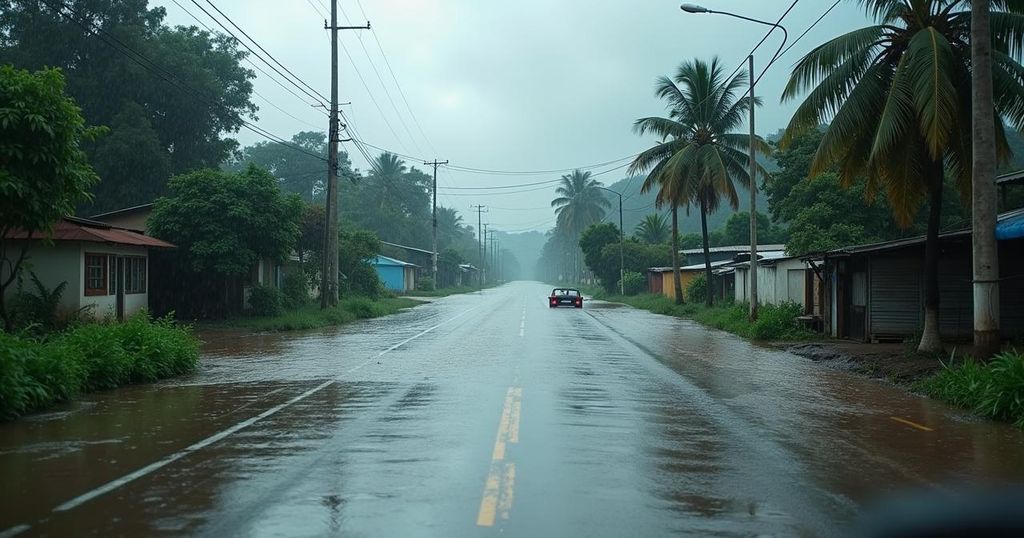Catastrophic Floods in West and Central Africa Displace Thousands and Worsen Humanitarian Crises
Severe flooding caused by torrential rains in West and Central Africa has displaced over 400,000 people, particularly impacting northeastern Nigeria. The floods have resulted in more than 1,000 deaths and extensive infrastructure damage, worsening existing humanitarian crises. Local communities face overwhelming challenges, with calls for international aid growing amidst significant losses and despair.
Severe flooding has wreaked havoc in northeastern Nigeria, displacing over 400,000 people and resulting in devastating humanitarian impacts. Following torrential rains in West and Central Africa, Maiduguri, the capital of Borno State, has experienced catastrophic conditions. Eyewitness accounts reveal houses swept away and communities struggling amid rising water levels. With over 1,000 fatalities reported across affected regions including Nigeria, Niger, Chad, and Mali, many residents are left without assistance. Reports indicate that this year’s floods in West Africa have tripled the numbers impacted compared to the previous year, raising major concerns regarding climate vulnerability and infrastructure resilience. Local authorities are overwhelmed as rescue efforts continue against the background of an existing insurgency crisis. Eyewitness Saleh Bukar likened the fear felt in Maiduguri to a nightmare, stating, “Water is flooding everywhere!” Many individuals, particularly the elderly and disabled, have been left behind in the chaos, often leading to unfortunate drownings. Emergency responses have begun to address the needs of the displaced populace, as crucial infrastructure, such as dams and bridges, has been severely compromised. The Governor of Borno, Babagana Zulum, has urgently called for international assistance, emphasizing that local resources are depleted. The World Food Program and USAID have initiated aid efforts, providing food and cash assistance. However, many survivors have voiced feelings of abandonment, struggling without adequate support. Flooding has had a particularly severe impact on wildlife and livestock, with significant losses reported at local museums and parks. As additional rainfall is forecasted, the residents of Maiduguri remain in a precarious situation, with approximately 15% of the city still submerged in floodwater. Amidst this turmoil, community members are attempting to support one another, demonstrating resilience amid despair as they confront ongoing challenges from nature and conflict.
The recent catastrophic floods in West and Central Africa are part of a broader climate crisis impacting the region. Africa contributes minimally to global greenhouse gas emissions; however, it is one of the most vulnerable areas to extreme weather events, with changing climate patterns aggravating existing humanitarian crises. The annual cost to adapt to these climatic changes is estimated between $30 billion and $50 billion, creating immense challenges for nations already grappling with poverty and conflict. The current floods have exacerbated these challenges, particularly in countries like Nigeria, Niger, Chad, and Mali, where already fragile communities are being devastated by simultaneous crises of warfare and climate-related disasters.
The ongoing flooding in West and Central Africa highlights the intersection of climate vulnerability and humanitarian crises in the region. With thousands displaced and many facing a lack of adequate support, the international community is urged to respond urgently to the needs of affected populations. The urgent call from local authorities and eyewitness accounts underscore the dire circumstances and the resilience of those seeking to support each other in the face of challenges. As climate change continues to exacerbate weather extremes, these incidents stress the importance of global awareness and proactive assistance to mitigate the effects of future disasters.
Original Source: apnews.com




Post Comment